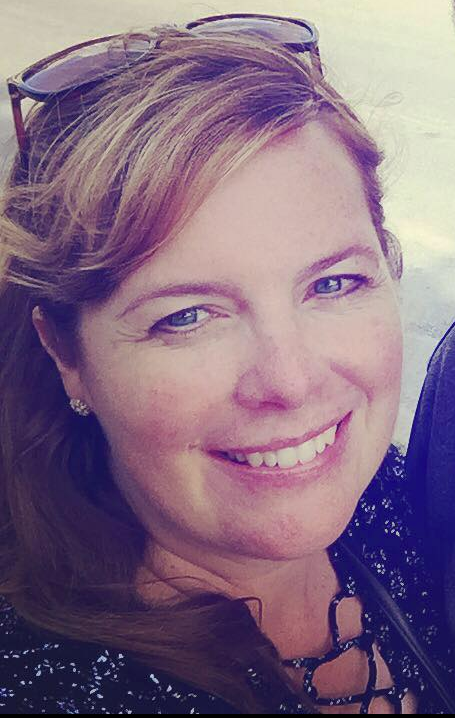
One of my favorite questions to ask is, “When is a time you didn’t think you would make it?” Is it tough to answer? Yes! But it means the world. Not only for the storyteller, but for all those who will read your story. That is because overcoming obstacles can be easier if we know that someone we love or maybe even someone we don’t even know, overcame something tough and survived.
Overcoming obstacles – the “hard stuff” of life

We all have different ways we tackle the difficult parts of life. Some of us tell anyone who will listen, while others bury it deep in our souls. Some of us go into deep depression, while others seem to be able to bounce back easily. However we deal with it, I think it is vital that we find a way to talk about it. If we can’t share it at the time it is happening, we need to put a voice to it sometime in our lives, if for no other reason than to teach those who go after us that we are not alone in our trials.
Guide to writing sensitive subjects

Writing about the hard stuff can promote healing and inspire others - but there are some caveats. Get our guide book PDF, which includes tips and support.
Recently, I had the opportunity to interview Olympic gold medalist Scott Hamilton after his keynote speech at RootsTech 2018. He is an expert on going through hard stuff – and coming through it on top. His life has been riddled with hardship for sure. He was given up as an infant, stopped growing as a small child, had testicular cancer, and a brain tumor – three times in 12 years to be exact. He laughs when he says he “collects rare diseases.” When he was learning to skate there was much trial and error for him. He found out quickly that if you are male and a figure skater and weren’t winning medals there was a problem. Not only did he crash on the ice countless times (five in his first major competition), he lost his mom to breast cancer just before the pinnacle of his career as a figure skater. But he got up, every time. He got up for his mother and he got up for himself. Hamilton likes to focus on the good things in life – he does this by knowing what they are and holding on to them. One of those good things he held on to was the woman that would be his wife. “I was knocked down enough times and got up enough times to know the greatest gift I had received was her,” he said of his wife. He acknowledges that life can be rough, but we have control of how to handle it. “Life is what we make it. But it’s also the life that we’ve been given that comes with incredible responsibility to make its choices better than the ones we’ve been given,” Hamilton said. His wife taught him a valuable lesson when she said, “Joy is not the lack of suffering, it’s how you go through it.”
Related: My five takeaways from RootsTech 2018
Oscillating Narrative
There has been quite a bit of research lately about how important it is to talk about difficult things…and then write about them. In a recent article by FamilySearch, it talks about how talking about the difficult parts of life can help us become more resilient and that using an oscillating narrative is the best way to sort through it all. I loved the way the article puts it:
“Balanced stories of ‘I worked hard and got a great job, but then I was laid off. I was depressed at first, but then I saw it as an opportunity to rethink my career path. Then I got a new job that I love even more.’ The research found that the balanced or “oscillating” story is the most healthy—and most nuanced—of the narratives.”
There aren’t many people’s lives that are all good and all bad, we often have peaks and valleys. But for some of us, when we are in the valley, we wonder if there will be a peak. That’s why writing sharing and writing down those triumphs is vital – it helps others to rise up. I have found there are four big reasons to tell and write about the hard stuff.
Related: Surviving an avalanche: a story of faith
1. We Need a Sounding Board
It’s not easy to just spill your soul to people and sometimes the hardest people to tell about your struggles are the people we love most. I have found this to be true in my years of interviewing. For some reason, we often feel safer telling strangers about our trials than we do our dearest friends or lovers. We seem to lose a layer of safety and protection when we reveal our deepest struggles, so telling someone close to us makes us feel vulnerable. It can feel more comfortable to tell a stranger because we don’t have to face that person we’ve born our soul to over and over. We have lightened our load and not placed a burden on someone we love. I find it interesting when I interview couples talking about their life stories how often they say, “I never knew that about you,” or, “You never told me that story.” When we are laying it all out to someone we don’t have ties to, vulnerability may come easier.

Brandon Stanton of “Humans of New York” fame shared his ideas about revealing hardships to strangers at RootsTech as well. I felt a certain camaraderie with him when he spoke of this interview style because I have found people open up to strangers more easily time and again. It is in the magic of the interview and it is powerful. I love reading the hard stuff Stanton is able to pull out of people from just an hour-long interview. He said it sometimes takes about that long to get people talking and trusting him. He also uses different approaches to be on the level with them, both physically and emotionally. One of his favorite questions mirrors mine in some ways, “What is your greatest struggle?” And while he knows it’s important to ask that of strangers, he encouraged us to ask that of our loved ones to create the same kind of connection he has with those thousands of strangers he interviews on a daily basis. Have you thought of yours yet? Mine seems to change over weeks, even days.
Stanton also pointed out that we don’t need to be quite as reluctant with the people we love when it comes to talking about the hard stuff than we think. “We are all carrying it around, but we don’t want to put people out of their comfort so we don’t ask. Just ask. We need to talk about it. We need to let it go,” Stanton said. I agree. Sometimes it’s hard when people ask me, but after we talk, I’m so glad they did! I feel loved, even cherished and I have a bond with that person.


I loved his style of helping people to talk about their struggles. He will often ask what their greatest struggle is and then follow up with questions to see if they have solved it or know how to. The actions that he has seen as a result of the stories he has posted have been nothing short of remarkable. It would seem when people read those short vignettes of people’s struggles they feel inspired to make change in their lives and to help them. I noticed yesterday that one of his posts generated over $1 million in donations from the public to help a young gentleman in his plight. Incredible. Struggles can equal triumph for so many, including ourselves. I think even writing those struggles down in a journal and looking back on how they were overcome is another special way to use challenges to grow.
2. Your Obstacles May Help Countless Generations
I was talking to a young friend of mine the other day about writing her story. She said she felt inspired after her dad pulled out his journal of the time when he was her age. She giggled as he conveyed some of his stories, but then she got serious when she heard about some of his insecurities, which are some of her own now. Her dad is her hero and him showing his weakness now makes her stronger. New York Times best-selling author Bruce Feiler shared that telling your kids about the hard stuff is vital. “We need to be real with our kids,” Feiler told me at RootsTech in 2016. Sometimes real is scary, but it is truth and they need to hear it. If it’s hard to speak it, write it down so they can see it at some point. He calls this an “oscillating narrative,” and it has been proven to foster great resilience in kids. (To read more about it, click here.)
3. It Helps Others to Overcome Their Own Trials


I know for me, reading and hearing those stories of those who have gone before me helps on many down days. I still remember the day my grandma told me that her mother-in-law tied her babies in the trees in East Texas to help save the family farm and work alongside her husband. Do you know why she did it? So the wolves would not eat her children! A reality that has never been a part of my life. But I learned she worked hard and sacrificed much. So I can too.
Related: Alice Ann’s story showed me riches
4. You Can Decide How Much to Tell
The newspaper reporter blood in me often wants to dig all the stuff out in interviews. But I have learned with some stories, I have to use my softer, gentler side and know when it’s time to stop pressing. There is some hard stuff that is better left untold. I was recently doing an interview and something occurred in the family that changed the family, but it was rough, very rough. For just a moment I felt the need to press for more information, but then felt the prompting to back off. I’m so glad I did. After the interview was over the couple thanked me for not pressing because it wasn’t right to tell. And when we tell our stories we have that right. And when we interview that loved one we also have that obligation to listen to our gut and listen to your subject and stop when it’s time to stop.
Each of us can decide how we want to be remembered. But do choose to be remembered. Tell your story. Tell about the hard stuff. If you can’t tell your family now, tell a stranger and save it to be shared for a later date. Write it in a journal. You will feel better and your family will love you for it, I know it without a doubt.
Guide to writing sensitive subjects



Writing about the hard stuff can promote healing and inspire others - but there are some caveats. Get our guide book PDF, which includes tips and support.


Rachel J. Trotter is a senior writer/editor at Evalogue.Life – Tell Your Story. She tells people’s stories and shares hers to encourage others. She loves family storytelling. A graduate of Weber State University, she has had articles featured on LDSLiving.com and Mormon.org. She and her husband Mat have six children and live on the East Bench in Ogden, Utah.
Do a family history interview


Sign up and we will email you a free, printable download of our mini-course to conduct a great oral history interview. You will be done in a week or less.

Pingback: The Power of Remembering Ancestors « Meridian Magazine
Pingback: Writing a personal history, journal ideas and why it's important | LDS365: Resources from the Church & Latter-day Saints worldwide
Pingback: Writing a personal history, journal ideas and why it's important - Tell Your Story with Evalogue.Life
So true! I think embracing our whole story and really putting into words what we’ve learned and overcome gives us tremendous power over our situations and gives us a greater sense of self. Great article! And I’m so glad you got to go to RootsTech!
Thanks so much! The idea of additional personal power in our lives gives us motivation. Thanks for your thoughts and support. Have you been to RootsTech before?
Pingback: Is Yours a Redemption Story? - Tell Your Story with Evalogue.Life
Pingback: What Reno Mahe Taught me about Tragedy, Commitment and Triumph
It is so hard to know how, when, and what to share. But so important to know that sharing your struggle might help someone else and you don’t even know it! All our actions have a ripple effect.
This is very inspirational, insightful and filled with good advice. I agree that sharing your struggles is a great way to cope and keep going.
It is so true, I have found in my own life that I repeatedly tell strangers much more than the people closest to me if I am going through problems.
We agree. It can be freeing in many ways. Thanks for your comment!